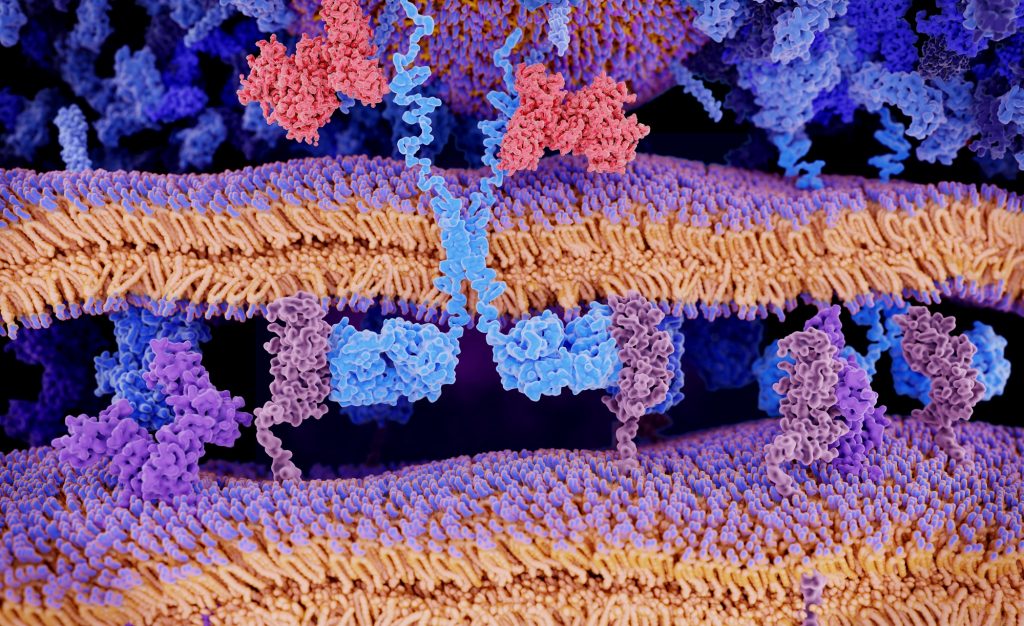Scientific progress within the field of cancer immunotherapy has led to five CAR-T cell therapy approvals: Kymriah (tisagenlecleucel), Yescarta (axicabtagene ciloleucel), Tecartus (brexucabtagene autoleucel), Breyanzi (lisocabtagene maraleucel), and Abecma (idecabtagene vicleucel). Additionally, JW Therapeutics has announced NMPA approval of Relmacabtagene Autoleucel Injection in China. This is the first CAR-T product independently developed in China and approved as a Category 1 biologics product, as well as the sixth approved CAR-T product globally.
Unfortunately, the blood cancers treatable by the existing CAR-T cell therapy approvals represent less than 5% of cancer patients worldwide. Thus, more than 600 ongoing clinical trials are now focusing on solutions to other blood cancers and solid tumor types, which represent 95% of all cancer cases. This growth in the number of clinical trials has been fueled by the unprecedented 90% remission rate shown in acute lymphoblastic leukemia (ALL) patients using Kymriah.
CAR-T therapy earned more than $700 million in 2019 and with more products expected to reach commercialization, this rapid growth industry is poised to produce over $12.6 billion by 2028. The deal volume also increased from one deal in 2012 to 34 in 2021, with a total value of approximately $475 million.
In 2012, there were only 12 CAR-T clinical trials. Today, this number had surged to over 1,200. Between 2017 and 2021, five CAR-T products reached commercialization within the U.S. and a sixth was approved within China. This number is estimated to reach double-digits by 2024. Since Kymriah and Yescarta received their historic approvals in 2017, they have been infused into approximately 450,000 patients worldwide. With other approvals anticipated, the addressable patient population for CAR-T therapy will be approximately two million (2,000,000) within the next ten years.
Autologous vs. Allogeneic CAR-T Cell Therapies
All five of the marketed CAR-T cell therapy products and nearly 75% of the ongoing clinical trials utilize an autologous treatment approach. Autologous CAR-T cells are expensive to produce because they are manufactured in a laboratory-like environment on a patient-by-patient basis. At times, the autologous production can be hampered, because of the shortage of CAR-T cells and viral vectors. The cost of autologous CAR-T therapy is further escalated by the need for the complex cold chain required during transportation.
Another key issue is the “vein-to-vein” time or the time that elapses between apheresis and product delivery. Thus, CAR-T therapies are usually recommended for the end-stage patients who have exhausted all other treatment options. These challenges have driven up the price, making CAR-T cell therapies unaffordable for many patients.
Another challenge encountered by CAR-T therapies is the reimbursement issues across the U.S. and Europe. The diagnosis-related group payment in the inpatient system is not sufficient to cover the cost of CAR-T care. Even with the updated rules, hospitals in the U.S. take a net loss on Medicare patients treated with CAR-T cell therapies. At the same time, providers can ensure cost recovery in the out-patient setting.
For the continued exploitation of CAR-T cell therapies, the industry is taking efforts to mitigate these challenges. Several CAR-T players have started to use efficient gene-transfer tools to impregnate T cells with CARs, and there are numerous examples of partnerships to develop CRISPR and electroporation technologies to modify T cells. Some companies also use “on-off” switches that can turn off CAR-T cells to prevent toxicity.
Thus far, the goal of achieving success with solid tumors remains elusive with clinical trials showing only a 4.1% complete response. Ongoing efforts within the CAR-T sector are largely focused on discovering effective solid tumor-specific antigens.
The Future of CAR-T Cell Therapies
Until the first FDA approval of cancer immunotherapy in 1990, the foundations of cancer treatment were surgery, chemotherapy, radiation therapy, and bone marrow transplantation. For the past ten years, immunotherapy has gained worldwide acceptance as the “fifth pillar” of cancer treatment.
From 60% to 70% of the patients treated in the earliest clinical trials are now in remission for more than nine years, which is an unprecedented accomplishment. The developments within the field of CAR-T cell therapy are only the “tip of the iceberg”. Today feels similar to the launch of the first chemotherapy treatments, when oncologists started with one type of chemo. Now, fifty years later, cancer patients are being treated with more than 100 different chemotherapy agents.
In a similar way, we will soon have numerous CAR-T therapies available to treat liquid cancers, solid tumors, autoimmune diseases, and inflammatory conditions.
